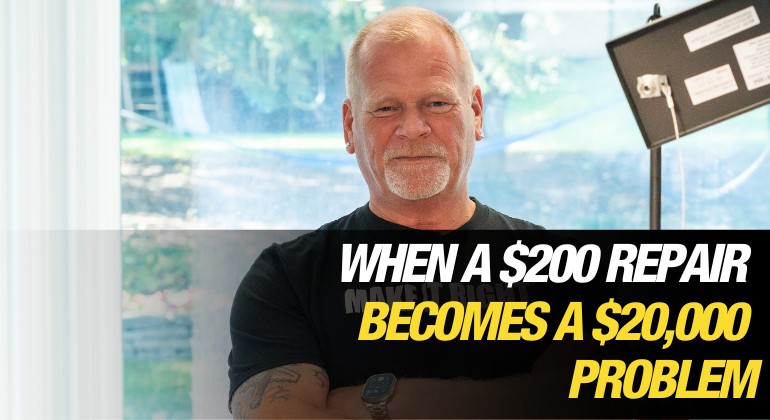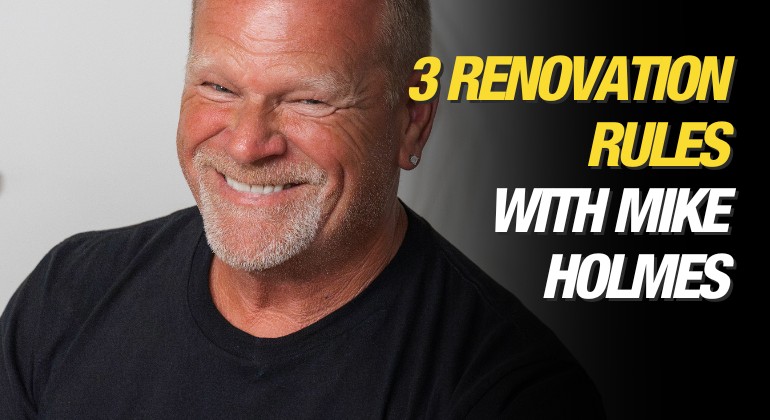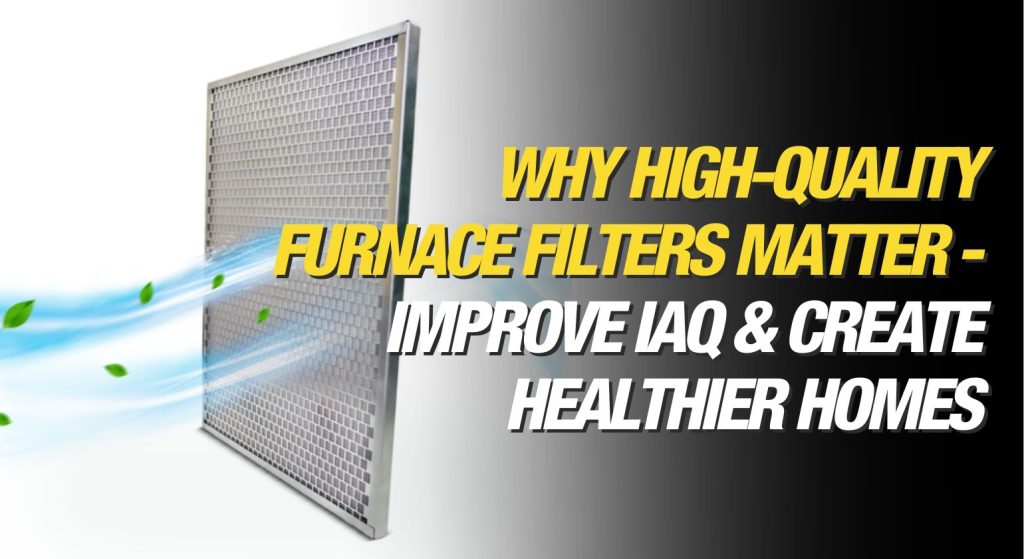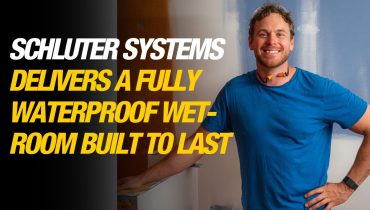I love exploring new technology—especially when it genuinely improves how we work in construction—and I recently came across one that truly impressed me, iGUIDE by Planitar Inc. In my...

Water Heater Comparison: Choosing the Best Model for Your Home
By simplistics
Mike’s Advice / HVAC
Tuesday, April 22nd, 2025 @ 1:39pm
Electric Storage vs Tankless vs Heat Pump Water Heater
Choosing the right water heater for your home is essential for energy efficiency, cost savings, and overall convenience. Generally, all water heaters work to do the same thing —heat water for your home for showering, dishwashing and washing your clothes among other things. There are three main types of electric water heaters to consider:
- Electric Storage Water Heater: heats water in a tank and keeps it hot 24/7.
- Electric Tankless Water Heater: heats water only when you need it – no storage tank is required.
- Heat Pump Water Heater: uses a storage tank but pulls heat from the air to warm the water instead of generating heat directly.
Each has its advantages and drawbacks. Let’s discuss the pros, cons and considerations to help you pick the right water heater for your home.
Electric Storage Water Heaters: The Traditional Choice
Electric storage water heaters are stationary electric storage tanks that heat and store hot water for use within your home. These tanks run using resistance heating rods and come in a range of storage tank volumes ranging from 30-gallon to 120-gallon (135L to 540L).
Most homes have a 30 or 40-gallon tank. However, there is a trend to move away from this type of unit because of the inefficiency of straight-resistant elements.
What are the Benefits of Electric Storage Water Heaters?
- Installation: units are reliable and easy to install as they work with standard mechanics.
- Economical: Lower upfront costs compared to other options.
- Location: Work in any climate.
Are there any drawbacks to Electric Storage Water Heaters?
- Energy Costs: Higher energy costs as there is wasted energy to keep heating water in the tank, even when not in use.
- Needs More Space: Since the units are large they may require more space than other options.
- Life Span: The life span of these units is typically shorter than alternatives and lasts about 8-12 years.
Who Is This Best For? This type of system is a great option for budget-conscious homeowners looking for a simple, affordable option with no major installation upgrades.
RELATED
Tankless Water Heaters: Hot Water on Demand
Tankless water heaters heat water on demand and are becoming increasingly popular. You may have seen us install tankless water heaters on many of our projects and I love them. They give you an endless supply of hot water on demand, so no more running out of hot water in the mornings as the whole family is getting ready at the same time.
Tankless water heaters heat water using a burner. When the pressure increases the burner turns on and heats the water as needed and continues until the pressure stops (or you turn off the tap).
What Are The Benefits of Tankless Water Heaters
- Energy-Efficient: No wasting energy unnecessarily by heating the water that sits in the tank.
- Space Saver: Typically mounts on a wall and is much smaller than other types, so it takes up much less space. Plus, no venting is required, like gas models.
- Life Span: With regular maintenance, a high-quality unit should last 15-20 years.
Are There Any Drawbacks to Tankless Water Heaters?
- Higher End: models typically have higher upfront costs.
- Installation Upgrades: some models may require electrical upgrades depending on your current electrical system.
Who Is This Best For? Tankless water heaters are perfect for owners of smaller homes who have limited space, seek energy savings, and are prepared to make a higher initial investment.
RELATED
Heat Pump Water Heaters: The Energy Saver
Heat Pump Water Heaters are a combination of an electric water heater and a heat pump combined – or the best of both worlds. A heat pump water heater (HPWH) does not generate heat directly; instead, it moves heat from one location to another. It extracts heat from the air in the basement, utility room, or sometimes from the outside, and transfers that heat to a water tank.
I’m a big fan of heat pump technology, I think this is the way of the future —more energy-efficient heating and when you combine this to create a hybrid electric water heater – that’s something to get excited about.
What are the Benefits of Heat Pump Water Heaters?
- Energy-Efficient: This form of water heater is the most energy efficient option and can cut water heating by as much as 60%*
- Minimal Carbon Footprint: environmentally friendly, as these run without fossil fuel.
- Life Span: Lasts longer than traditional storage heaters – anywhere from 10-15 years.
- Easy Installation: Since heat pump water heaters still require a tank, swapping your current one for a new hybrid water heater is simple. Some models put the water connections on the left and electrical on the right, allowing plumbers and electricians to work simultaneously for quicker install.
- Multiple Sizes: heat pump water heater models come in 50-gallon and 80-gallon options, ideal for different household sizes.
- Quiet Operation: Heat pump water heaters are generally quiet, operating within the 45-55 decibel range but some run at a very low 49 dB(A)—comparable to the sound of a quiet refrigerator, so it won’t be noticeable during daily use.
Are There Any Drawbacks to Heat Pump Water Heaters?
- More Costly Upfront: Heat Pump Water Heaters have a higher upfront cost but look for rebates and incentives.
- Needs More Space: Most units require more space (at least 750 to 1000 sq cubic metres) and well-ventilated areas. However, if space is a concern, some models provide optional duct adapters that allow for flexible airflow and installation, making it easier to fit in a variety of locations.
Who Is This Best For? Heat pump water heaters are perfect for homeowners who are looking for long-term energy savings and a greener option.
Performance & Efficiency Comparison
When discussing electric storage, tankless and heat pump water heaters we need to recognize we are talking about three different types of heating methods: resistance heating vs. instant heating vs. heat pump technology.
Energy efficiency, water availability and recovery time are also important factors to consider when selecting the type of electric water heater.
| Feature | Electric Storage | Tankless | Heat Pump |
| Heating Method | Resistant Heating | Instant Heating | Heat Pump |
| Energy Factor | 0.9 – 0.95 | 0.95 – 0.99 | 2.0 – 3.0** |
| Efficiency Level | Low | High | Very High |
| Standby Heat Loss | High | None | Minimal |
| Recovery Rate | 1-2 hrs | Instant | Moderate |
| Lifespan | 10-15 yrs | 20+ yrs | 10-15 yrs |
| Annual Operating Costs | $500 – $700 | $300 – $700 | $150 – $300 |
| Best For | Low Upfront Cost | Continuous hot water | Maximum Savings |
** Energy efficiency is evaluated using the Energy Factor (EF) or the Uniform Energy Factor (UEF) rating. A higher rating indicates a more efficient unit. An EF of 2.0 – 3.0, means these units produce 2 to 3 times more hot water per unit of electricity compared to standard electric storage models.
Heat pump and tankless water heaters are more energy-efficient than traditional storage models. Of these, heat pump water heaters have the lowest operating costs due to their high efficiency. Tankless water heaters save energy by eliminating standby heat loss, offering moderate savings.
On the other hand, electric storage water heaters are typically the most expensive to operate because they need to constantly reheat the water.
Environmental Impact: Which Option Is the Greenest?
Electric (hybrid) heat pump water heaters use significantly less electricity, which also reduces carbon emissions. Also, heat pump technology works with alternative sources, like solar which makes it the greenest option for eco-friendly homeowners.
Cost Comparison: Initial Investment & Long-Term Savings
Electric storage water heaters (traditional water heaters) have a lower upfront cost but higher operating costs over time.
Tankless water heaters provide long-term savings and a continuous supply of hot water, although they tend to have a higher price tag. However, they use approximately 30% less electricity than traditional heaters.
Heat pump water heaters offer the best energy efficiency and environmental benefits. They use up to 70% less energy on average compared to standard electric water heaters.
The installation costs, including parts and labour, range from $500 to $1,500 for traditional water heaters, while tankless and heat pump water heaters typically range from $1,000 to $3,000.
Pro Tip: It is always advisable to consult a professional plumber or HVAC technician, who can help you determine the best option for your specific needs and home. Also to reduce overall costs, always look for energy efficient models that qualify for government rebates and utility incentives.
Lifespan & Maintenance
Tankless water heaters typically have a longer lifespan—often exceeding 20 years—compared to storage, and heat pump models, which generally last 10 to 15 years. Energy-efficient tankless heaters can significantly reduce your carbon footprint and electricity consumption, making them a more sustainable choice.
Regardless of the model you select, it is crucial to follow the manufacturer’s guidelines for regular maintenance, including filter changes and cleaning, as recommended by your HVAC technician.
Don’t Forget To Check the Warranty
In my opinion, its always best to go with a high-quality brand, because you know you’re going to get a product that will last, and it’s backed by a great warranty. Make sure your unit comes with a good warranty, like a 10-years on the tank and parts, including 1-year labour.
Some models comes with an industry-leading 15-year warranty on the heat exchanger and a full 5-year limited warranty on parts. So remember to check the details!
Installation Requirements
Traditional storage water heaters are fairly simple to install, requiring only basic electrical and water line connections.
However, tankless water heaters often need electrical upgrades depending on the load your current system can handle. Some models, may also require gas lines for proper operation. This can add complexity to the installation process but ultimately results in energy-efficient hot water on demand.
Most hybrid heat pump water heaters, require adequate ventilation and space to work efficiently. These units extract heat from the surrounding air, so they need to be installed in a well-ventilated area, such as a basement or utility room, to ensure optimal airflow. Look for heat pump models that are designed for easy integration into your home while providing long-term energy savings and enhanced performance.
Climate & Location
Traditional storage water heaters are designed to work in any climate, making them versatile and reliable for households across different regions. They maintain their performance regardless of outdoor temperatures.
Heat pump water heaters are more efficient in warmer climates, where the temperature stays above 40°F (4°C) year-round. Since they rely on ambient air temperature to extract heat, they work best in areas that don’t experience extreme cold. In colder climates, they may require additional heating assistance or may not perform optimally.
Tankless water heaters perform well in moderate climates, where temperatures remain relatively stable. These systems are best suited for regions where hot water demand is steady but not excessive. In areas with extreme temperatures, tankless models might need extra consideration for insulation and water flow rates.
Why You Should Always Hire a Pro for Installation
I always recommend hiring a licensed HVAC specialist. Why? A professional will assess your home’s size, hot water demand, and usage patterns to determine the correct size and capacity of the water heater. Too big or too small a unit can lead to energy waste or insufficient hot water.
They will also be able to install it correctly for maximum performance as well as, and ensure the installer is also accredited by the manufacturer. This guarantees that you receive a thorough evaluation of the available products. Additionally, professionals offer warranties and regular maintenance inspections. It’s important to ensure you get the most out of your chosen system.
Always Use a Certified HVAC Pros in your area.
There are several water heating options available for homeowners, depending on your needs. No matter which option you choose, ensure proper installation to maximize efficiency and safety. Take your time to consider all your options—both short-term and long-term—work with a licensed HVAC professional, and always check energy efficiency ratings. Additionally, look for rebates and incentives in your area.
Water Heaters FAQ
Electric vs gas water heater: Which is cheaper to run?
A gas water heater is more cost-efficient than an electric model in the long run.
Does a tankless water heater use more electricity?
An ENERGY STAR certified tankless water heater uses 30% less energy, on average, than a storage tank type.
Should I replace my gas water heater with a heat pump?
If you want to prioritize energy efficiency and save on costs, consider replacing your gas water heater with a hybrid heat pump water heater. This option is particularly beneficial if you live in a moderate climate where temperatures rarely drop to freezing.
Is a tankless water heater worth the investment?
Tankless water heaters can be up to 34% more efficient than traditional tank-style models. The efficiency is due to the fact that tankless units heat water only when it is needed, which eliminates standby energy loss. Also, tankless water heaters typically have a longer lifespan compared to tank-style models.
How long do water heaters typically last?
Generally, heat pumps and electric storage heaters have approximately the same life span of 10-15 years, while a tankless can last 20+ years with regular maintenance and upkeep.
Are there any rebates for switching to an energy-efficient model?
Yes, work with your dealer, manufacturer and local government programs to find out the latest rebates, discounts and incentives available.
READ NEXT







